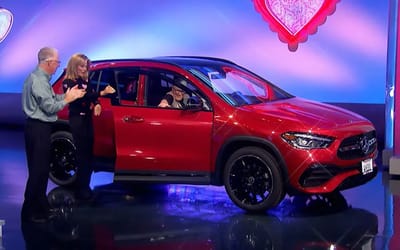Nissan’s budget N7 EV made in China is going worldwide
Published on Jul 09, 2025 at 11:27 PM (UTC+4)
by Callum Tokody
Last updated on Jul 09, 2025 at 1:24 PM (UTC+4)
Edited by
Callum Tokody
Nissan’s N7 EV will soon reach the global car market as the brand expands exports of its affordable electric car.
This Nissan sedan was designed to meet the growing domestic demand for budget-friendly electrification, but it is now being positioned as a low-cost option for international buyers.
Nissan has confirmed the formation of a dedicated export company to handle the global rollout.
Preparations are already in motion for Southeast Asia and the Middle East, with other markets under evaluation.
VISIT SBX CARS – View live supercar auctions powered by Supercar Blondie
N7 EV exports mark a shift in strategy
The N7 EV is built on the Dongfeng eπ 007 platform, giving Nissan a flexible foundation to adapt quickly across markets.
By leveraging this platform, the company has avoided the cost and complexity of developing a new Nissan sedan from scratch.
Instead, it formed a joint venture with Dongfeng to manage international distribution, supported by a one billion yuan investment.
Nissan holds a 60 percent share in the operation.
Initial export regions will include Southeast Asia and the Middle East.

Reports from Chinese media suggest that Europe and Australia are also being considered, though no official confirmation has been provided.
The move reflects a shift in how legacy automakers approach the global car market.
By reusing existing platforms and focusing on efficient localization, Nissan is making the N7 EV a core part of its affordable electric car strategy.
Other brands are adopting similar models. Mazda’s EZ-6, also based on Chinese foundations, is set to launch in Europe.
Nissan’s approach with the N7 EV shows how even well-established brands are finding new ways to remain competitive in markets where pricing is critical.
Nissan EV software must evolve for new markets
Although the N7 EV’s physical platform is ready for export, its software system is not.
The original version relies heavily on Chinese AI infrastructure, which is subject to strict regulations abroad.
To meet compliance requirements, Nissan has partnered with IAT Automobile Technology to build a region-specific software suite.
The new system will include updated infotainment, navigation, and driver assistance features, tailored to match international standards.

Without these changes, the Nissan sedan would face restrictions in key regions of the global car market.
The overhaul ensures that the N7 EV remains a viable option while avoiding regulatory setbacks.
Despite the need for new software, Nissan is maintaining its focus on value.
The platform remains unchanged, allowing the N7 to stay firmly in the affordable electric car category.

The software upgrade is a targeted solution that supports the car’s global rollout without compromising cost control.
The international expansion of the N7 EV reflects Nissan’s shift toward scalable, export-ready design.
The company is prioritizing efficiency, compliance, and reach over high-spec innovation.
As this Nissan sedan enters the global car market, it sets the tone for how the brand may approach future electric offerings in a space increasingly shaped by price and accessibility.
Click the star icon next to supercarblondie.com in Google Search to stay ahead of the curve on the latest and greatest supercars, hypercars, and ground-breaking technology.
DISCOVER SBX CARS: The global premium car auction platform powered by Supercar Blondie
Callum has vast and varied experience, presenting a radio show and founding his own magazine to name just a couple of his accolades. In addition to his role as PR & Partnerships Coordinator, liaising with the most prestigious car brands in the world, Callum also heads up the website’s daily news. When he's not at his desk he can be found testing out the ASMR and driving UX of the latest supercar and EV launches.




